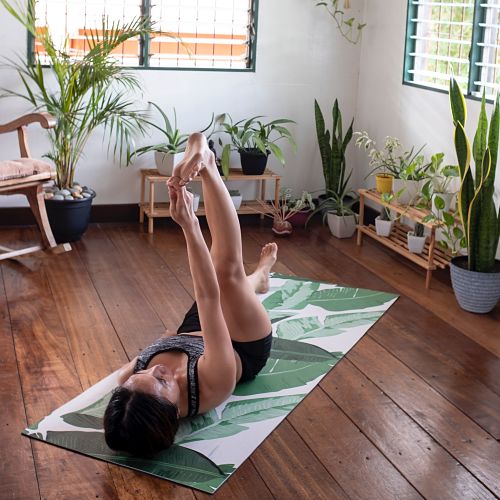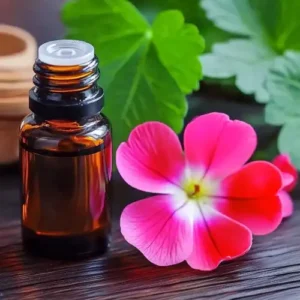While the height of the COVID-19 pandemic is behind us, many of the health lessons we learned remain valuable. Here are a few things to keep in mind as you try to protect yourself, both physically and mentally.
No. 1: Watch Your Diet
Your shopping habits have probably changed since the pandemic began, but that doesn’t mean you need to eat unhealthily. Fresh vegetables and fruit are still readily available and these will help strengthen your immune system. Because you’re likely spending more time at home than pre-pandemic, you’re going to be very tempted to snack on cakes, biscuits, and other sweet products simply because you’re bored. Be aware of this trap, and whenever you feel peckish reach for a piece of fruit, some nuts, or crisp sliced vegetables like carrots and celery. If you’re thirsty, grab a glass of water — don’t be tempted to always reach for juices, coffee, or even alcohol.
Research shows that nutrient deficiencies negatively affect the immune system, which is the last thing you need if your body is required to fight off germs or a virus. Be aware of what you’re putting into your mouth and try to eat fresh foods every day if you can.
If you’re struggling with food deliveries, please don’t be shy about asking family, friends, neighbours, co-workers etc. for help. Most people only need to be asked and they’re happy to help. Also be aware of the amount of food you consume each day — most people eat when they’re bored, which can only adversely affect your general health and your weight.
No. 2: Keep a Close Eye on Your Mental Health
Stress can creep up on us when we’re not paying attention and can be devastating to both our health and our immune system. COVID-19 has caused people to have many different concerns, whether it be financial stress, work issues, social distancing, inability to visit loved ones, health issues, and so on. Any of these can seriously affect your mental health and your stress levels.
Keep in mind, always, that you are not alone. Whatever you are feeling, so many others are too. COVID-19 has certainly created problems for most of us, so we need to find ways to handle the worries and stresses associated with these changes.
- The first thing to do is to stop and breathe deeply.
- If you know how to meditate, this is the perfect time to do it. If
you don’t know how, there are plenty of instructional videos online
to show you how. Meditation is a wonderful way of teaching your body
and mind how to relax. - Turn on your radio or play your favourite CDs (nice and loud!)
- If you have family with you, forget about housework and dig out all
your favourite games and spend some quality time together. - If you have pets, they would love as many walks as you’re prepared
to offer! - Love reading? This would be the ideal time to indulge yourself.
- What about starting a daily exercise regime? There are so many
online exercise routines available that can be carried out in your
own home. Have you tried yoga? Again, there are many online yoga
tutorials, and they’re for all ages. - Don’t forget about your family and friends. Keep in regular contact
with your friends and loved ones through video chats, phone calls,
and social media. - Make sure you get enough good-quality sleep.
- How about taking up a new hobby? Have a look online and see what
others are doing.
If you’re becoming worried about your mental health, or a loved one’s mental health, please take a look at the advice offered by the wonderful charity, Mind.
No. 3: Stay Active
Being active remains important for health and wellbeing. Simple household chores like cleaning, walking up and down stairs, and making sure you get out of your chair at least every hour and move around, can make an enormous amount of difference to both your physical and mental health. There are many, many at-home exercise videos available online, including DVDs on yoga, various cardio workouts, gentle exercises for the elderly, vigorous HIIT, all types of dancing, and anything else you could imagine.
We know that movement helps reduce stress, anxiety, and depression, and it’s great for improving your general mood and sense of well-being. And don’t forget about your garden! Take every opportunity you can to get outside into the fresh air and sunlight — your garden will thank you for all the extra attention!
No. 4: Drink Plenty of Water
This is the one that many of us forget about. It’s really important for your general good health that you stay hydrated throughout the day. Drink water on a regular basis right throughout your day. This will also help protect your immune system. If you’re wondering exactly how much water you should be drinking to keep your body hydrated, check out the Association of UK Dietitians’ Fluids Fact Sheet. They’ve also got some good advice on the types of foods you should be eating.
Keep your alcohol consumption to a bare minimum and this will help you stay hydrated. Over consumption of alcohol can seriously affect both your physical and mental health. If you’re already finding that you’re drinking more alcohol than usual and you’re not succeeding in trying to reduce your intake, have a look at this article from Dry January, which gives some great tips on how to cut down or give up completely.
No. 5: Get a Good Night’s Sleep
It’s really important at any time in your life that you get a good night’s rest, but it’s especially important when people are experiencing more worry and stress than usual. In a recent study reviewed by the NHS it was discovered that those who had less than 5 hours sleep each night were more than 4-times likely to catch a cold, while those who had between 6 and 7 hours sleep were not at a higher risk of catching a cold.
We are constantly being told that sleep has an effect on both our immune system and our overall health, with sleep specialists recommending that we must all aim for between 7 and 9 hours sleep each night. For better quality sleep, limit screen use, alcohol, and caffeine.
No. 6: Monitor Your Health at Home
The UK health service continues to face significant pressures, which means that any unnecessary trip to the hospital or even to your local doctor is only going to add to that pressure. However, your health is very important, so if you have a health concern please call NHS 111. During the year 2019, 111 was able to prevent 12-million A&E visits, so give them a call and they’ll be able to advise on the best course of action should you become ill or have an accident at home.
Monitoring your health at home is not difficult, and there are many at-home health tests that can be taken. These range from pregnancy tests, glucose testing for diabetes, cholesterol tests, and STI tests — all carried out in the privacy of your own home. If you have pets, you can even purchase vet-approved tests for routine health checks for your dog or cat. Just be sure that you order your at-home testing kits from a trusted and approved supplier.
Photo by Maryjoy Caballero on Unsplash
Zoom Health is a leading UK supplier of Home Health Tests and Earplugs
This post has was first published in October 2020. It was last updated in November 2024.





